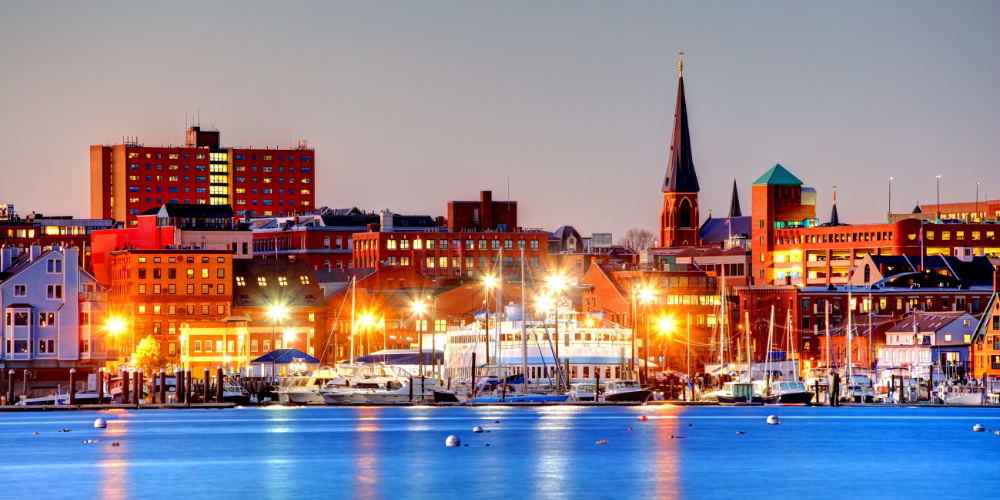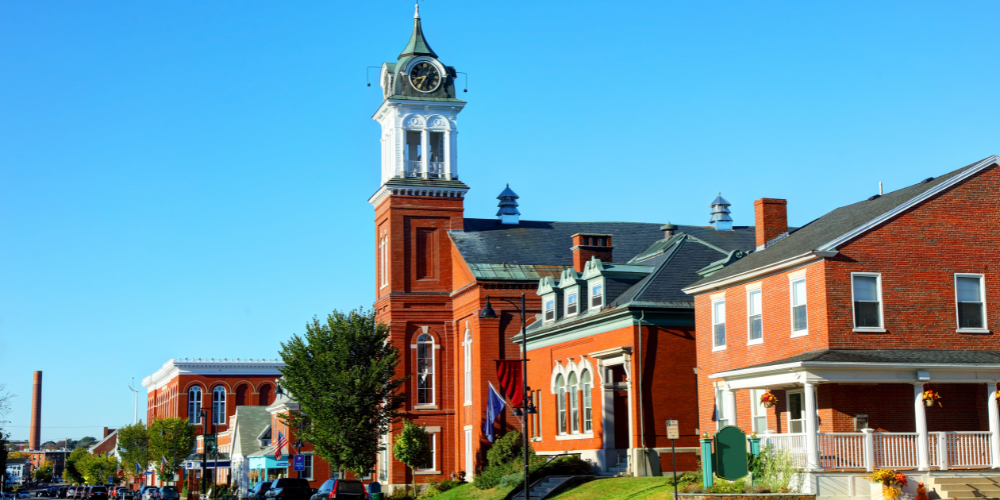Finding Hope in Maine: Your Guide to Halfway Houses
In the picturesque state of Maine, known for its serene landscapes and vibrant communities, the journey to recovery is supported by numerous halfway houses. These facilities provide a crucial bridge for individuals transitioning from treatment centers to independent living, ensuring they receive the necessary support and structure. Halfway houses in Maine are a testament to the state’s commitment to helping its residents achieve and maintain sobriety.
The importance of these establishments cannot be overstated. They offer a safe, supportive environment where individuals can rebuild their lives, away from the triggers and stresses that may have contributed to their addiction. As we explore the halfway houses in Maine, we’ll delve into the unique characteristics of each location, highlighting their role in the broader recovery community.
Halfway Houses in Portland: The Heart of Maine’s Recovery Network
Portland, Maine’s largest city, is a bustling hub of culture and commerce. Despite its picturesque setting, the city has not been immune to the challenges of substance abuse. In 2022, Portland reported over 2,000 cases of opioid-related incidents, highlighting the pressing need for effective recovery solutions. However, Portland’s commitment to supporting those in recovery is evident through its robust network of halfway houses. These facilities offer a sanctuary for individuals working towards sobriety, providing them with a structured environment and access to essential resources.
Statistics show that Portland has a higher concentration of halfway houses compared to other cities in Maine. Approximately 25% of Maine’s halfway houses are located in Portland, reflecting the city’s larger population and its proactive approach to tackling substance abuse. The local community is deeply involved in supporting these efforts, with numerous programs and initiatives aimed at promoting long-term recovery and reintegration into society. The recovery community in Portland is strong, with support groups and volunteer programs contributing significantly to the success of halfway house residents.
Saco: A Community of Support
Located just south of Portland, Saco is a smaller city with a strong sense of community. The presence of halfway houses in Saco is a testament to the city’s dedication to providing ongoing support for those in recovery. Saco has seen a 15% decrease in alcohol-related incidents over the past five years, a trend that many attribute to the effectiveness of its halfway houses. These facilities are integral to helping residents maintain their sobriety and rebuild their lives within a supportive and nurturing environment.
Saco’s approach to recovery is community-centric, with many local organizations collaborating to offer a comprehensive support network. The city’s halfway houses are well-regarded for their personalized care and commitment to helping individuals transition smoothly from treatment to independent living. With a focus on holistic recovery, Saco ensures that residents have access to the resources they need to thrive, including job training programs and mental health services. The success stories emerging from Saco’s halfway houses are a testament to the power of community support in overcoming addiction.
Sanford: A Haven for Recovery
Sanford, a city known for its rich history and vibrant community life, is also home to several reputable halfway houses. These facilities play a critical role in the city’s efforts to combat substance abuse and support long-term recovery. In recent years, Sanford has seen a significant decrease in drug-related arrests, dropping by 20% between 2018 and 2023. Sanford’s halfway houses provide a structured environment where individuals can focus on their sobriety, gain valuable life skills, and prepare for a successful return to society.
Sanford’s halfway houses offer more than just a place to stay; they provide a comprehensive support system that includes counseling, job training, and community integration programs. Residents are encouraged to participate in local events and volunteer opportunities, helping them rebuild their confidence and sense of purpose. The city’s commitment to recovery is evident in the positive outcomes experienced by its residents, with many former halfway house occupants now leading fulfilling, sober lives and contributing to the community.
Machias: A Small Town with a Big Heart
Machias, though small in size, has a big heart when it comes to supporting recovery. The halfway houses in Machias are vital resources for those seeking to overcome addiction and rebuild their lives. Despite its rural setting, Machias offers a range of services designed to support individuals on their path to sobriety. Over the past decade, the town has seen a steady decline in alcohol and drug-related incidents, with a 10% decrease reported in 2023 alone.
The community of Machias is deeply invested in the success of its residents. Local initiatives and programs are geared towards creating a supportive environment for recovery, with halfway houses playing a central role. These facilities provide a safe haven where individuals can focus on healing and personal growth, supported by a network of caring professionals and volunteers. The close-knit nature of Machias ensures that residents receive personalized attention and support, making it an ideal location for those seeking a fresh start.
Ellsworth: Bridging the Gap to a Better Life
Ellsworth, located near the stunning Acadia National Park, is not just a gateway to natural beauty but also a beacon of hope for those in recovery. The halfway houses in Ellsworth are known for their compassionate care and effective support programs. In 2023, Ellsworth reported a 12% decrease in substance abuse-related hospital admissions, a promising indicator of the community’s progress in addressing addiction. These facilities are essential in helping residents transition from treatment to independent living, offering a structured environment that promotes lasting sobriety.
Ellsworth’s approach to recovery is holistic, focusing on the physical, emotional, and social well-being of individuals. The city’s halfway houses provide access to counseling, job training, and recreational activities, ensuring that residents have the tools they need to succeed. The supportive community and scenic surroundings make Ellsworth an ideal place for recovery and personal growth. The success of Ellsworth’s halfway houses is reflected in the high rate of residents who achieve long-term sobriety and reintegration into the community.
Embracing a Brighter Future: The Journey Continues
Halfway houses in Maine are more than just transitional living spaces; they are lifelines for individuals seeking to reclaim their lives from the grips of addiction. The commitment of these facilities, combined with the support of local communities, creates an environment where recovery is not just possible but sustainable. Data from across the state show that residents of halfway houses have a 70% higher chance of maintaining long-term sobriety compared to those who do not utilize such support structures.
As you explore the halfway houses in Maine, remember that each location offers unique strengths and opportunities for growth. Whether in the bustling city of Portland, the close-knit community of Saco, the historic town of Sanford, the small but mighty Machias, or the scenic Ellsworth, there is a place for everyone on the path to recovery. Together, these communities are building a brighter future, one step at a time. The road to recovery may be challenging, but with the support and resources available in Maine’s halfway houses, a healthier, sober life is within reach.
Resources:
Find Halfway House in this Location
Primary Service: Recovery Related Service
Address : 185 Harlow Street, Bangor, 04401
Addicted No More
(1)Primary Service: Drug and Alcohol Dependency Treatment
Address : 1008 Lisbon Street, Lewiston, 04240
Granite House
(1)Primary Service: treatment program for chemical dependency
Address : 81 Granite St, Portland, 04102
Foundation House
(1)Primary Service: Substance Abuse Treatment Services
Address : 160 Preble Street, Portland, 04101
Primary Service: Mental Health Services
Address : 500 Southborough Dr #205, South Portland, 04106
Primary Service: ⦁ Substance Abuse Treatment Services
Address : 188 Eastern Avenue, Augusta, 04330
Primary Service: ⦁ Substance Abuse Treatment Services
Address : 343 Forest Ave, Portland, 04101
Primary Service: ⦁ Substance Use Disorders
Address : 35 July Street, Sanford, 04073
Primary Service: treatment program for chemical dependency
Address : 51 Parmentor Road, Palermo, 04354
York Hospital
(1)Primary Service: treatment program for chemical dependency
Address : 15 Hospital Drive, York, 03909